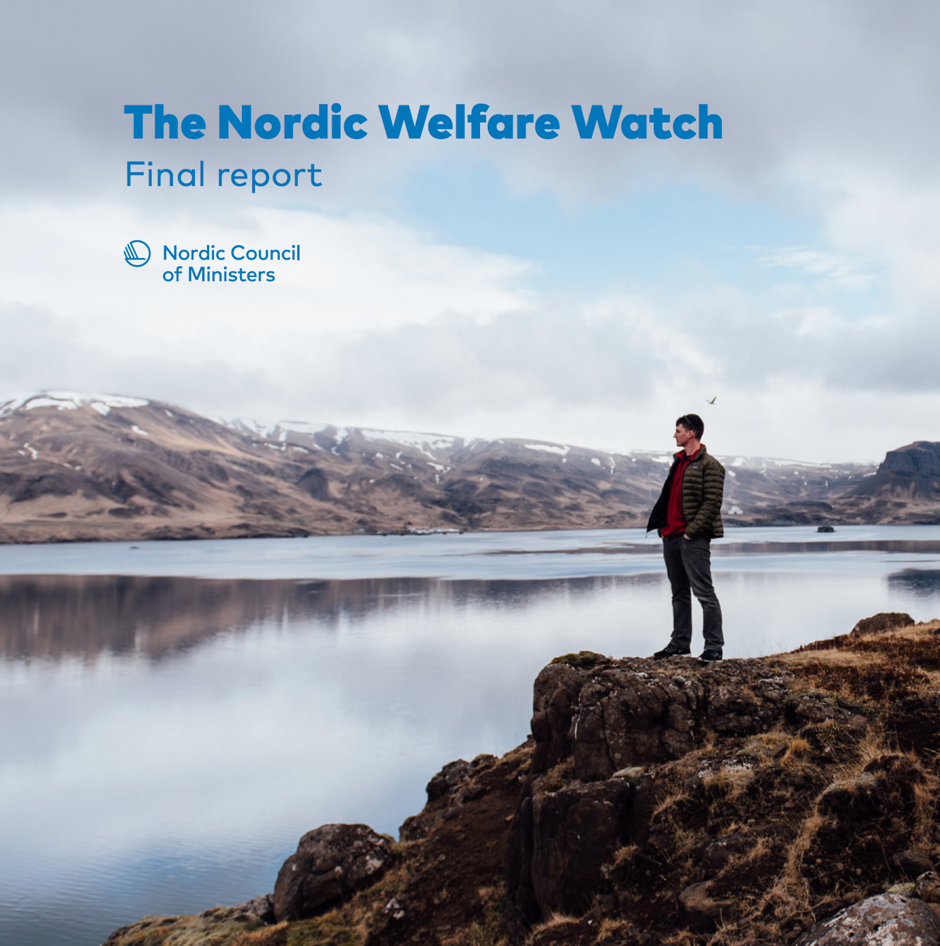The Nordic Welfare Watch Final report has been published. The report is part of the TemaNord series which is dedicated to the result of work groups or projects under the auspices of the Nordic Council of Ministers. The Nordic Welfare Watch was a leadership three year programme during the Icelandic presidency of the Nordic Council of Ministers that began in 2014. The goal of the programme was to find better ways to measure and monitor citizens' welfare, explore the effect of financial crisis and its side effects on the Nordic welfare societies, and to examine how well municipal social services were implemented in the Emergency Management systems. Comprehensive reports have been published for the programme and the final report addresses the main results. Furthermore, the report discusses a Nordic Welfare Forum and plans to publish a set of Nordic Welfare Indicators (NOVI). The programme consisted of three separate main projects:
1. Nordic Welfare Watch – in Response to Crisis
The project evaluated the capability of the welfare state in crises and disasters, with special emphasis on the role of social services. Lessons were learned from the project The Nordic Welfare Watch that was established in Iceland in the wake of the economic crisis of 2008; contingency planning in other Nordic countries were mapped out and Nordic welfare system were examined in order to prepare for future challenges. Special emphasis was placed on the social service's role and how it can increase the resilience among individuals and communities. The project leader was Guðný Björk Eydal, professor at the University of Iceland's Faculty of Social Work, and Ingibjörg Lilja Ómarsdóttir, Project Manager at the University of Iceland.
2. Welfare Consequences of Financial Crises
This project assessed and compared multi-dimensional welfare consequences of the financial
crises of the 1990s and the present crisis. Governments’ reactions and effectiveness of policy responses received special focus. Comparable data was collected from selected European countries, such as the Baltic states, Ireland, the United Kingdom, Greece, Hungary, Spain and Portugal; learning from what was done well and what did not pan out. Oxford University Press has agreed to publish a book about this project; the working title of which is Welfare and the Great Recession. The project leader was Stefán Ólafsson, Professor at the Faculty of Social and Human Sciences at the University of Iceland, and Agnar Freyr Helgason, also from the Unviersity of Iceland was Project Manager.
3. Nordic Welfare Indicators
A proposal on Nordic Welfare Indicators was put forward to facilitate more general monitoring of social trends in the Nordic countries at each time. These indicators would help policy and decision making to further strengthen the Nordic welfare state. The project leader was Sigríður Jónsdóttir, specialist from the Ministry of Welfare in Iceland, and Håkon Nyman, from the Ministry of Health and Social Affairs in Sweden was Project Manager.




